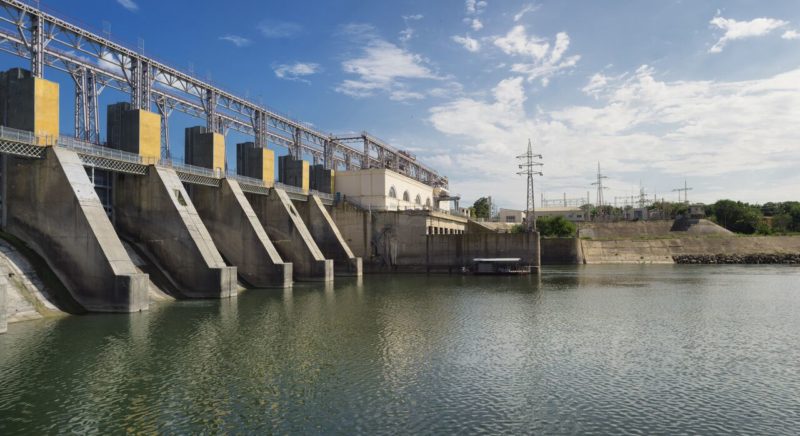We provide budget neutral solutions to improve energy efficiency, reduce costs, stabilize volatile prices, and achieve corporate sustainability. We believe energy cost management should be a long-term strategy, not something that is only considered when supply contracts are coming to term. We will develop an energy strategy designed to better meet your budget and energy savings goals.
Power Management Company takes an unbiased approach to electric and natural gas purchasing for our customers. Our supplier relationships give us the ability to look at a wide variety of options while leveraging our full portfolio of businesses to provide big volume buying power to all of our customers, regardless of size.
Not only are we thinking strategically about your electric and natural gas purchasing, but also efficiency and sustainability initiatives that may help to reduce your overall expenses. Whether your business could benefit from a lighting upgrade or solar project, our process will provide a timely ROI, and long-term energy savings. We will develop a turn-key plan, seek funding opportunities and tax incentives and establish benchmarks for your projects success.
ReCharge NY is a statewide economic development power program that allocates low cost power for qualifying customers. PMC learned that additional power would be available for new applicants and previous recipients of the old Power For Jobs Program would have to reapply for an opportunity to continue on the new program. PMC has identified a number of clients as strong candidates for this new program and brought it to their attention. Allocations are made through a competitive application process which Power Management is an expert at getting qualified company allocations for.

We provide budget neutral solutions to improve energy efficiency, reduce costs, stabilize volatile prices and achieve corporate sustainability.



Many businesses ask themselves this question at the start of their search for an energy provider. The deregulation of the electric and natural gas markets in select states has created a marketplace fueled by choices, savings, and flexibility. A few reasons that working with an independent, unbiased energy consultant like Power Management may be the right options for your business include:
Many suppliers will offer lower rates to consultants as compared to a customer directly due to the necessity to compete for your business as consultants will solicit quotes from multiple suppliers. Working with us, they are aware that you will be provided energy choices beyond just their offering, thus their price will be affected by the other players to which they will be compared.
Over the past 20 years, Power Management has developed strong relationships with numerous reputable suppliers. A supplier is much more likely to give energy consultants like Power Management a competitive price, not only because they know they are competing for the business, but also because they will have an opportunity for more business from the company in the future. We leverage our portfolio of customers to secure best pricing for each of our clients, regardless of size.
At first glance, shopping for competitive pricing offers from energy suppliers to compare the different options may seem overwhelming. While the ability to choose an alternative supplier has presented consumers with savings opportunities, there are also many challenges in selecting the best energy choices for your business. All suppliers have different contract language, agreement terms, and billing structures. In addition, the pricing components that suppliers use to quote may or may not include certain taxes and this can make their price appear lower than that of another. It is difficult for customers who do not review these documents frequently to effectively compare the proposals received from multiple suppliers. Experienced energy consultants like Power Management have extensive familiarity with the way various suppliers work as we are reviewing and accessing supplier contracts on a regular basis. We review in detail all supplier contracts to ensure all pricing components are included for a true all-in price.
We have a staff of experienced pricing and energy managers that have developed independent pricing models over the past 20 years. This allows us to verify factual market data against what the supplier quotes to make sure it is in line and accurate.
An energy consultant works to establish a comprehensive energy strategy to not only obtain a great price but keep your overall contract terms and risk avoidance goals in mind for the long run. Taking this approach allows us to develop an energy strategy designed to better meet your budget and energy savings goals.
As the core of their business, energy supply companies are most interested in providing customers with the supply price of the commodity ad may not have the staff or expertise to provide “value added” services. Here at Power Management, this is a major component of what sets us apart. Each client is assigned a personal Account Manager as their direct point of contact for any and all questions or concerns. They are the first person you can call whether it’s a dispute with the supplier or utility.
We also go far beyond the scope of what a supplier can offer. We monitor energy trends and price movements daily and are always willing to perform billing audits to ensure accuracy if you feel there is any discrepancy. Additional services such as rate tariff analysis, budgeting, weekly energy news updates, energy conservation, demand and sustainability expertise are all part of the value you receive when working with us.
Energy procurement gives businesses the opportunity to purchase energy proactively and strategically in an effort to minimize costs. At Power Management, we understand how critical managing energy costs can be to a company’s success. Procuring, or purchasing, natural gas and electricity can be confusing and time-consuming; business leaders are faced with trying to sort through an overwhelming number of companies now offering electric and natural gas supply alternatives. Power Management offers a thorough understanding of the underlying wholesale markets delivery factors, and the economic and political influences that impact pricing. We act as an advocate on your behalf to leverage our strong relationships with nationally recognized and financially sound energy suppliers, to obtain the most competitive pricing and provide you with an all-inclusive approach to best manage your energy costs.
Our energy procurement process begins with a discussion to learn more about your business; number of locations, hours, current agreements etc. Your account manager will then analyze and audit your utility invoices to get a clear picture of your energy usage profile and gather information needed for the pricing process. After reviewing your account information, our Pricing Team will negotiate on your behalf with our reputable network of suppliers.
We will then present the best available options to suit your specific energy needs. Rather than initiating energy purchasing based on contract expiration dates or fiscal calendars, we monitor market dynamics day in and day out, and aim to identify the best possible time to drive your energy procurement. Once an agreement is in place, we will stay in touch and continuously monitor the markets for any advantageous opportunities that coincide with your strategy and alert you when those opportunities exist for procurement savings. During the course of your agreement, we can also provide invoice audits to ensure pricing accuracy and consistency.